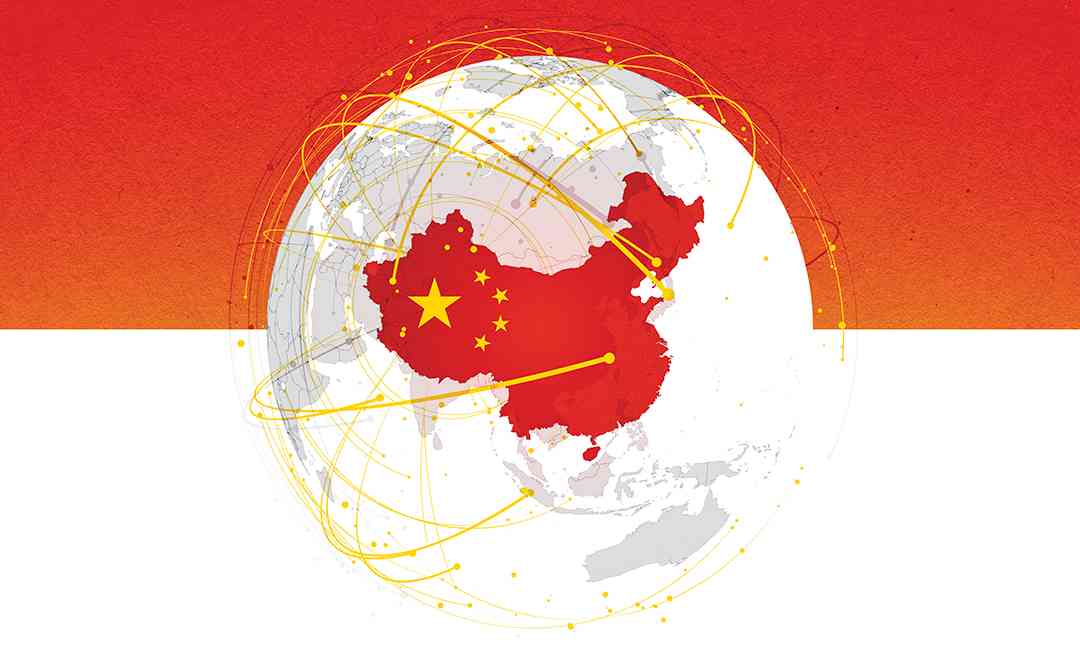
In recent years, China’s covert efforts to infiltrate sensitive political circles worldwide have sparked intense debates about Beijing’s methods of influence and their implications for democracies. From allegations of espionage in the United Kingdom to interference in Canadian elections, such recent incidents have highlighted an organized and sophisticated campaign to shape global governance in the Chinese Communist Party’s (CCP) favour. At its core, this strategy aims to weaken democratic systems from within while consolidating its own influence in these countries.
China’s approach to political infiltration has been subtle yet systematic, blending soft power, strategic investments, and covert operations. Unlike traditional espionage, which targets intelligence and defence sectors, the CCP’s methods have begun to focus on policymakers, legislators, and their aides. The recent case of Yang Tengbo, a 50-year-old Chinese businessman also known as Chris Yang, identified as an alleged Chinese spy with close ties to Prince Andrew, has sparked widespread concern regarding Beijing’s unlawful activities in democratic countries. UK authorities have accused Yang of forming an ‘unusual degree of trust’ with Prince Andrew and developing relationships with politicians so they may be leveraged by the CCP. This subsequently resulted in the UK Home Office banning Yang from entering the country, citing national security concerns. The decision was also upheld by the UK’s national security court in December 2024. The case has ultimately sparked renewed calls for the UK to designate China as a threat to national security. Critics argue that the UK’s current approach to China is too lenient and that a more robust stance is necessary to protect national interests.
Another case in the UK, where a parliamentary researcher was arrested on charges of spying for China, was yet another of many Chinese attempts to infiltrate into sensitive policy circles within hostile countries. By cultivating relationships across party lines, gaining access to confidential briefings, and monitoring debates on critical issues, the alleged operative aimed to influence policymaking in subtle but impactful ways. These attempts have therefore reflected a broader shift in China’s espionage strategies: moving beyond military secrets to controlling the lawmakers in democratic forums.
China has also exploited the inherent vulnerabilities of open political systems. Democracies thrive on inclusivity, transparency, and public participation, qualities that are, ironically, their Achilles’ heel. In Canada, intelligence reports revealed Chinese interference in federal elections, where agents allegedly funnelled funds into campaigns to sway outcomes. Such actions not only aimed to tilt specific results but also sowed distrust in democratic institutions, a far-reaching objective with destabilizing consequences.
However, the Party’s interference has also extended beyond direct funding. Beijing’s operatives have been known to have leveraged community organizations, cultural exchange programs, and even business networks to embed itself within political ecosystems. By operating in these legal grey zones, it avoids immediate detection while steadily advancing its goals.
A Broader Game at Play
While these instances of infiltration have dominated headlines in the West, the implications for the developing world are even more alarming. Beijing’s strategy in Africa and Latin America offers a blueprint for how it wields influence over weaker governance structures. By infiltrating political elites, China has gained preferential access to critical resources, including rare minerals and agricultural produce, often under opaque and exploitative terms.
This growing leverage not only undermines the sovereignty of these nations but also locks them into dependency on Beijing. Developing nations with fragile democratic systems and limited institutional safeguards are particularly vulnerable. For many of these countries, the cost is not just economic subjugation but also an erosion of democratic accountability, as local leaders align more closely with China’s interests than with their own citizens’ needs.
- The brains behind Matavire’s immortalisation
- Zim needs committed leaders to escape political, economic quicksands
- Chicken Inn knockout Harare City
- Ziyambi’s Gukurahundi remarks revealing
Keep Reading
China’s infiltration strategy is not merely about espionage or election meddling; it is about reshaping the global balance of power. By inserting itself into policymaking spaces, Beijing gains the ability to influence not just individual nations but also international norms. Whether by discrediting liberal democratic models or promoting its own governance system as a viable alternative, China’s actions have far-reaching implications for how democracy is perceived globally.
Moreover, the developing world stands to lose the most. For nations already grappling with economic and political instability, China’s influence threatens the possibility of genuine democratic growth. This is particularly concerning as the CCP continues to use its economic clout to silence criticism, whether through investments in strategic industries or through debt diplomacy.
These revelations about China’s activities demand more than outrage, it call for coordinated action that works towards safeguarding democratic ideals and privacy of those connected to important positions in the country. Democracies must strengthen their counterintelligence capabilities, scrutinize foreign investments, and ensure greater transparency in campaign financing. While these measures can mitigate Beijing’s immediate influence, the larger challenge lies in addressing the systemic weaknesses that China so effectively exploits. Equally important is the need to support institutional resilience in the Global South. As China deepens its foothold in developing nations, it is crucial for the international community to offer viable alternatives that prioritize sovereignty, accountability, and democratic governance.
China’s strategy of infiltrating sensitive political circles is a wake-up call for democracies worldwide. It is a reminder that the battle for global influence is no longer confined to conventional arenas. Instead, it has moved into the very institutions that define democratic governance. The response must be both resolute and systemic, ensuring that the principles of transparency and accountability endure in the face of this growing challenge.







